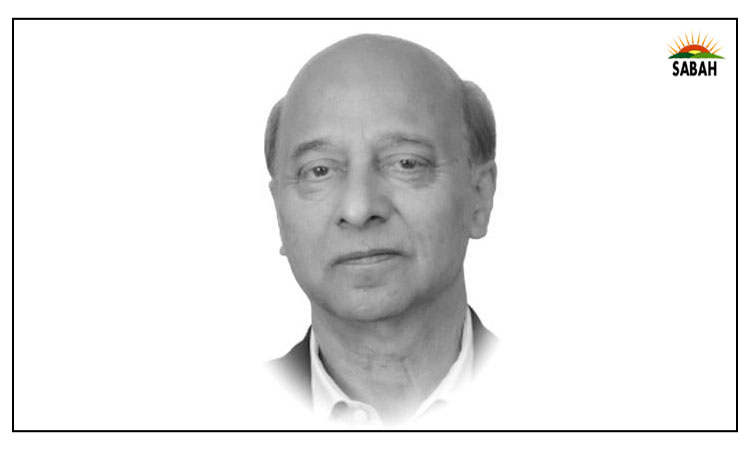PTI’s time for reflection and recalibration?….Imtiaz Gul
Following months of valiant protests, rallies, detentions, incarcerations, illegal raids on private homes, assault on business of party leaders and workers, phony criminal cases and administrative witch-hunt, is it time for PTI to recalibrate its strategy?
Imran Khan has made his point in unequivocal terms. He has survived over 400 days of Attock and Adiala jails in solitary confinement. Against all odds, he continues to lead the narrative on Pakistani politics like a chess player. He makes one move one day and the entire anti-camp begins countering him and his party for days through the media. Unwillingly, political rivals end up multiplying Khan’s message via TV screens through their – at times vitriolic – anti-Khan rhetoric.
Clear that personal egos of a few and their oozing contempt for one person triggers administrative overkill – roadblocks, curfew, section 144, dilly-dallying over venue for rally inter alia. Massive inconvenience to commuters and citizens hardly matter for those who order the pliant administration to “completely seal off access” to proposed venues and to constrain movement of opposition workers and leaders. What a cost to the national exchequer? Imagine a container costs at least 40,000 rupees in rent a day. The Sangjani rally on September 8 (and terrorism cases against a dozen PTI MPs) and the September 28 protest march to Rawalpindi as well as the October 4 Islamabad protest involved the deployment of hundreds of containers. And mind you containers are seized or rented days ahead of such events. Islamabad even otherwise, meanwhile, wears the look of a “containerised city”.
A very conservative cumulative rental cost, say for 500 containers, comes to over 10 million rupees daily. But these containers stay parked at critical places for weeks – a bonanza for the police administration too.
Sangjani, Lahore, Rawalpindi and Islamabad witnessed the same pattern, and left little doubt that mighty civil-military stakeholders will continue to engage PTI in this nerve-wrecking game of ping-pong. No smooth sailing as witnessed in the stand-off between the Supreme Court (SC) and the Election Commission of Pakistan (ECP). By defying the SC, the ECP is acting as the shield for the ruling coalition – stalling the issue of reserved seats as well as notification of 41 MPs as PTI members.
Some harsh political realities, therefore, merit dispassionate consideration. On the domestic front, the annulment (October 4) by the Supreme Court itself of a previous Supreme Court ruling on the issue of floor-crossing from May 2022 only reinforced the perception that illegality and immorality doesn’t count any more. The unfolding script underscores one harsh reality – might is right. Those who wield the baton will carry the day at will. Qazi, Bilawal, Zardari, Sharifs, Tarars, Nawabs and Jams have all acted as obedient facilitators.
All of them have found or invented plenty of self-serving arguments – however flawed – to drive the narrative with the full institutional backing.
Now to the external front. The smooth sailing of the $7 billion IMF loan stands out as clear evidence of how the ruling elites of countries such as Pakistan, Egypt and Argentina benefit by aligning their policies with those of the US-led West.
“The IMF’s take on how to build a reform constituency in Pakistan is not through democracy and fair elections, or commitment to constitutional rule of law or political legitimacy. These appear secondary to IMF’s reform recipe which emphasized the need for effective communication to build broad consensus and support for reforms”, before approving the programme which, according to economist Sakib Sherani, represents yet another structurally flawed approach.
“Rather than playing a more assertive role in constructing a proactive and flexible framework for dealing with the debt-distress of developing countries, it is forcing distressed borrowers such as Pakistan to close even small financing gaps by punitively high-cost commercial borrowing and impoverishes the lower- and middle-income segments of society through ‘shock therapy’ involving steep increases in administered prices, increased incidence of taxation, removal of subsidies,” Sherani writes.
But why would the IMF care as long as the recepient countries are geo-politically aligned with Washington? Certainly not. Glaring examples are Egypt, Argentine, Ukraine, and now Pakistan. And the smooth inflow of IMF funds under different names to these countries are essentially not only an acknoledgment of that alignment but also in a way “political bribes” to the ruling elites of these countries.
The PTI needs to apply this very geo-political lens to what Pakistan is going through: it is clearly aligned with the US-led West; has openly condemned the Russian invasion of Ukraine; and has acted in a way vis-a-vis pro-Palestine demonstrations that betrays allegiance to the West than a real concern for the Palestinians and the Lebanese.
So the task ahead should be to step back from protests, focus on party reorganisation, prepare and equip the 80-odd PTI (Sunni Ittehad Council) parliamentarians with knowledge of governance and parliamentary affairs. Change Khyber-Pakhtunkhwa as much as possible instead of pandering to YouTubers and TikTokers. Therein lies the survival of the party in times that are (in view of the Israeli aggression against four Muslim countries) clearly defined by geo-political alliances and not the rule of law regime or the Universal Declaration of Human Rights. What matters is geo-political interests and this is what is driving Pakistan too.
Courtesy













